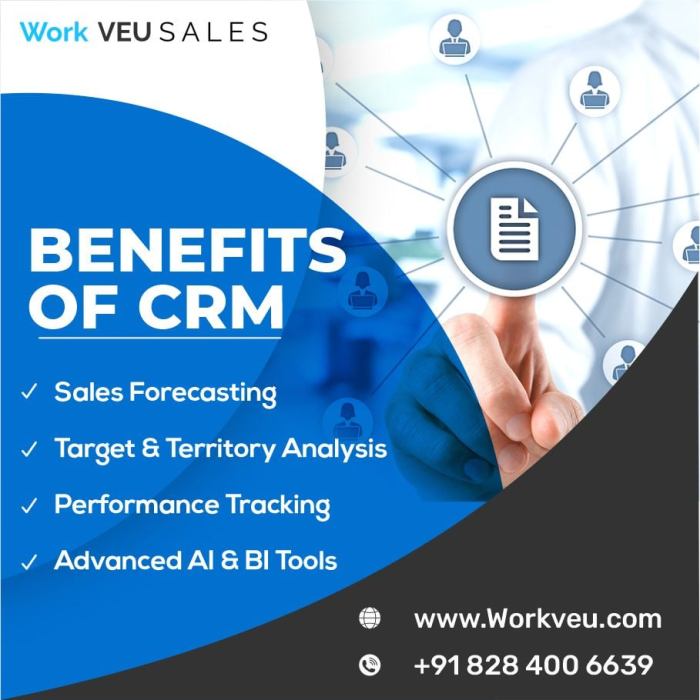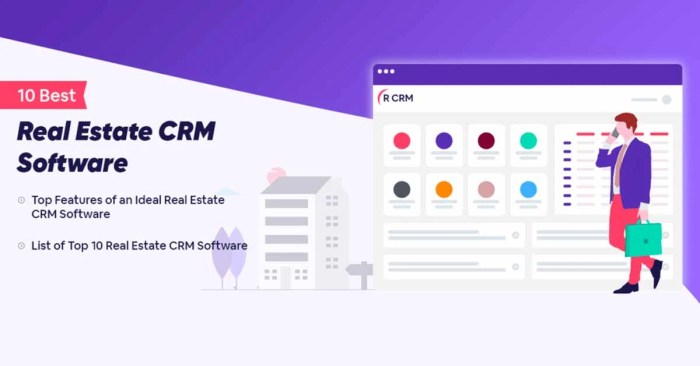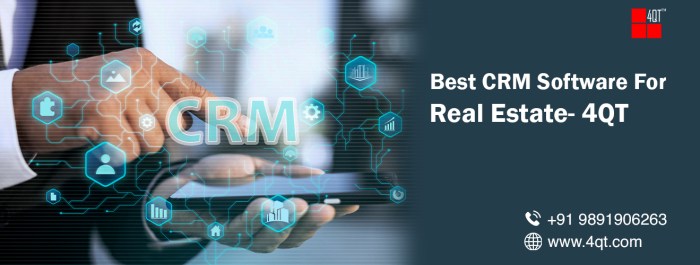Best crm software for commercial real estate – The commercial real estate (CRE) industry is a dynamic and competitive landscape. Success hinges on efficient lead management, robust client relationships, and a keen understanding of market trends. A well-chosen Customer Relationship Management (CRM) system is no longer a luxury but a necessity for thriving in this environment. This comprehensive guide explores the best CRM software options specifically designed to meet the unique demands of commercial real estate professionals, helping you streamline operations, boost productivity, and ultimately, close more deals.
Understanding the Needs of a CRE CRM
Unlike CRM solutions for other industries, a CRE CRM needs to handle specific functionalities. These include:
- Property Management: Tracking property details, lease agreements, and tenant information.
- Deal Management: Managing the entire sales cycle from lead generation to closing, including tracking commissions and deal stages.
- Contact Management: Maintaining detailed profiles of clients, prospects, and partners, including communication history and preferences.
- Market Analysis: Integrating market data and analytics to inform strategic decisions.
- Reporting and Analytics: Generating insightful reports on key performance indicators (KPIs) to track progress and identify areas for improvement.
- Integration Capabilities: Seamless integration with other essential tools like email marketing platforms, accounting software, and property management systems.
Top CRM Software for Commercial Real Estate
Several excellent CRM platforms cater specifically to the needs of commercial real estate professionals. The best choice depends on your specific requirements, budget, and team size. Here are some of the leading contenders:
1. Salesforce
Salesforce is a widely recognized industry leader, offering a highly customizable and scalable platform. Its robust features include advanced contact management, deal tracking, and reporting capabilities. While it’s a powerful solution, it can be more expensive and complex to implement than other options. Its extensive app exchange allows for significant customization and integration with other CRE-specific tools.
2. HubSpot, Best crm software for commercial real estate
HubSpot is a popular choice for its user-friendly interface and comprehensive suite of marketing and sales tools. Its free CRM is a great starting point for smaller businesses, while its paid versions offer more advanced features like deal tracking, contact management, and reporting. HubSpot’s strength lies in its integrated marketing automation capabilities, which are invaluable for lead generation and nurturing in the CRE sector.
3. Zoho CRM
Zoho CRM is a cost-effective alternative that provides a solid set of features for managing contacts, deals, and tasks. It’s known for its intuitive interface and ease of use, making it a good option for teams that need a straightforward CRM solution without a steep learning curve. Zoho offers various integrations, though its breadth might not match Salesforce’s.
4. Copper
Copper is a CRM built specifically for Google Workspace users. Its seamless integration with Gmail, Google Calendar, and other Google apps makes it a highly efficient choice for teams already heavily invested in the Google ecosystem. Copper excels in its simplicity and ease of use, prioritizing a clean and intuitive user experience.
5. Real Estate Specific CRMs
Several CRMs are specifically designed for the real estate industry, offering features tailored to the unique needs of brokers, agents, and property managers. These often include property listing management, client communication tools, and market analysis features. Examples include Apto, LionDesk, and BoomTown. Researching these specialized solutions may yield significant advantages depending on your specific needs.
Key Features to Consider When Choosing a CRE CRM
When selecting a CRM, consider these crucial features:
- Lead Management: Efficient tools for capturing, qualifying, and nurturing leads.
- Contact Management: Detailed contact profiles with communication history and custom fields.
- Deal Tracking: Visual pipelines to track deal progress and identify bottlenecks.
- Document Management: Secure storage and easy access to important documents like leases and contracts.
- Reporting and Analytics: Customizable dashboards and reports to monitor key performance indicators.
- Mobile Accessibility: Access to the CRM from any device, anytime, anywhere.
- Integrations: Seamless integration with other essential tools like email marketing platforms, accounting software, and property management systems.
- Customer Support: Reliable customer support to address any issues or questions.
Implementing and Optimizing Your CRE CRM: Best Crm Software For Commercial Real Estate
Successfully implementing a CRM involves more than just choosing the right software. Consider these steps:
- Define Your Needs: Clearly identify your specific requirements and goals for the CRM.
- Data Migration: Plan for a smooth and efficient migration of existing data into the new system.
- User Training: Provide thorough training to your team on how to effectively use the CRM.
- Process Optimization: Adapt your workflows to leverage the CRM’s capabilities.
- Ongoing Monitoring and Adjustment: Regularly monitor the CRM’s performance and make adjustments as needed.
Frequently Asked Questions (FAQs)
- Q: What is the best CRM for small commercial real estate businesses? A: HubSpot’s free CRM or Zoho CRM are excellent starting points for smaller businesses due to their affordability and ease of use. Consider Copper if you’re heavily invested in the Google Workspace ecosystem.
- Q: How much does commercial real estate CRM software cost? A: Pricing varies significantly depending on the features, scalability, and vendor. Expect to pay anywhere from free (for basic plans) to thousands of dollars per month for enterprise-level solutions.
- Q: Can a CRM help me improve my sales process? A: Absolutely! A CRM provides tools for lead management, deal tracking, and sales forecasting, allowing you to streamline your sales process and improve efficiency.
- Q: What are the key benefits of using a CRM in commercial real estate? A: Key benefits include improved lead management, enhanced client relationships, increased sales productivity, better data analysis for strategic decision-making, and overall business growth.
- Q: How do I choose the right CRM for my specific needs? A: Carefully evaluate your requirements, budget, team size, and technical expertise. Consider the features listed above and request demos from different vendors to see which platform best fits your workflow.
Resources
Call to Action
Ready to transform your commercial real estate business with a powerful CRM? Contact us today for a free consultation to discuss your needs and find the perfect solution for your team.
General Inquiries
What are the key features to look for in a commercial real estate CRM?
Essential features include contact management, deal tracking, lead management, property management capabilities, reporting and analytics, and integration with other business tools.
How much does commercial real estate CRM software typically cost?

Source: amazonaws.com
Pricing varies widely depending on features, number of users, and vendor. Expect a range from affordable monthly subscriptions to more substantial enterprise-level solutions.
Can a CRM integrate with my existing marketing automation tools?

Source: techjockey.com
Many CRMs offer integrations with popular marketing automation platforms, enabling seamless data flow and streamlined marketing efforts. Check for compatibility before purchasing.
What is the best way to train my team on new CRM software?

Source: 4qt.com
Most vendors provide training resources, including online tutorials, webinars, and dedicated support staff. In-house training sessions and ongoing support can also prove beneficial.
